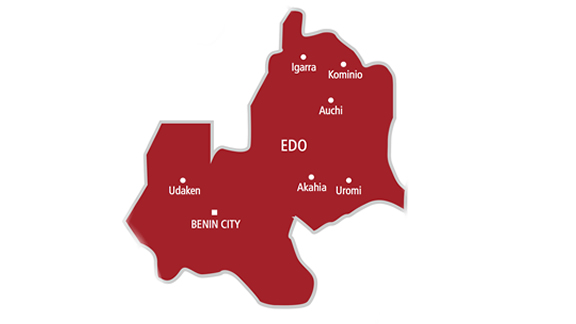Managing Director of the Niger Delta Development Commission (NDDC), Samuel Ogbuku, has flagged off rice harvest at the Commission’s Rice and Cassava empowerment programme field in Warrake, Owan East Local Government Area of Edo State.
He said the commission was committed to reviving agricultural development in the Niger Delta states through the Rice and Cassava Empowerment Programme which recorded significant harvest.
Speaking, Ogbuku said the inaugural harvest was a significant day in the history of the commission’s agricultural progammes in the Niger Delta.
Represented by the Director of Agriculture and Fisheries in the NDDC, Dr Winifred Madume, Ogbuku described the harvest as a joint accomplishment.
According to him, the all-round success of the farm and the adoption of full mechanisation from land preparation to harvest was due to the adoption of good agronomy practice.
“The lesson learnt from this inaugural farm and others currently at various stages will support our efforts in continuous improvement.
“During the onboarding programme in June, we assured everyone that this programme will be successful. Today, this harvest serves as a milestone in a journey that is far from complete but has certainly taken off on a strong footing,” Ogbuku said.
He said the commission also has similar rice empowerment programmes in Akwa Ibom and River states that will soon be ready for harvest.
Ogbuku explained that the commission designed the programme in such a way that it would not only be self-sustaining but its success would attract financial institutions and other partners to join in expanding to reach more communities and farmers.
He thanked the leadership of the Warrake community for not only the land made available for farming but also the enabling environment provided for the success of the project.
He assured selected communities where the programme is yet to start, that the project will not only come to their communities but will be sustained once it kicks off.
Also speaking, the consultant for the project, Von Kenneth Dimieari, said the farmers prepared 98 hectares but planted 50 hectares due to late planting.
“We planted 50 hectares of Faro rice but as a result of drought, 25 did not survive and 25 hectares survived.
“From the 25 hectares that survived, we are projecting three tons per hectare yield,” he said.
He said the farm is structured in a way that a portion of the harvest will go to the farmers while another portion will be used to repeat the process as planting would continue.
He attributed the short fall in the harvest to the late planting which he said affected some sections of the farm, adding that Edo State doesn’t experience much rainfall as Delta, River and Akwa Ibom states.
“In Akwa Ibom, we started with 50 hectares and last month, we planted additional 60 hectares. We will install irrigation pumps in the farms and hopefully by early December, we will commence harvest,” he said.

 Join Daily Trust WhatsApp Community For Quick Access To News and Happenings Around You.
Join Daily Trust WhatsApp Community For Quick Access To News and Happenings Around You.


